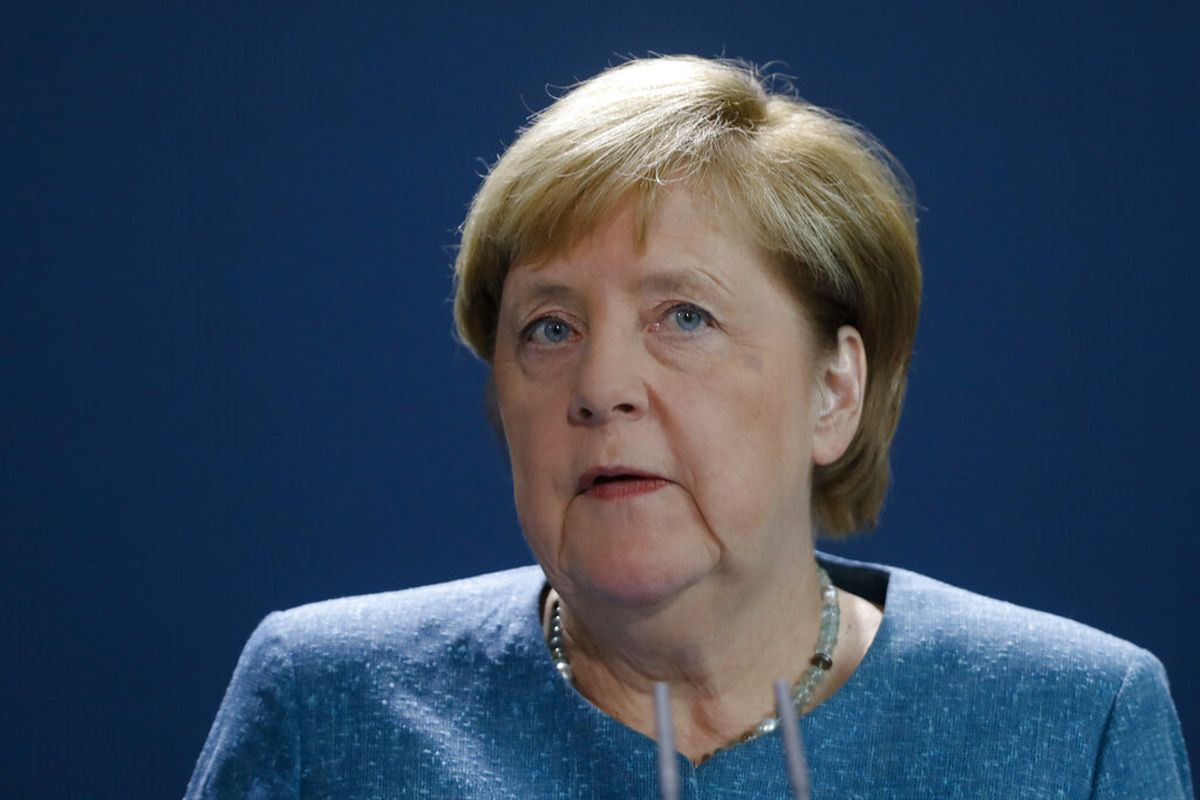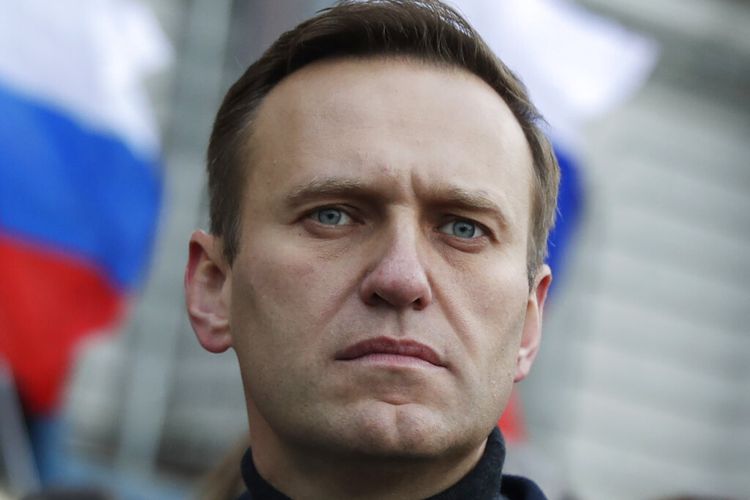Alexei Navalny Novichok Finding Sparks Outrage among Western Leaders

BERLIN, KOMPAS.com – Germany's announcement on the detection of a Novichok nerve agent to poison Putin critic Alexei Navalny on Wednesday sparked outrage among western leaders.
They have since demanded an explanation from Moscow on its attempt to “silence” the Russian opposition leader.
Forty-four-year old Alexei Navalny is the latest Russian defector and Putin critic to be poisoned in suspicious circumstances. He is now receiving medical treatment at a Berlin hospital.
Medical tests from the German military's chemical weapons laboratory had given "unequivocal evidence" that Navalny had been afflicted by military-grade Novichok, a poison first developed by the Soviet Union towards the end of the Cold War.
Read also: Germany Urges Moscow to Ramp Up Poisoning Investigation of Alexei Navalny
The findings had prompted "some very serious questions that only Russia can and must answer", German Chancellor Angela Merkel said.
"It is certain that Alexei Navalny is the victim of a crime," she added. "He was meant to be silenced and I condemn this in the strongest possible terms."
The news prompted a fresh round of condemnation from European leaders in an affair that has already sent tensions spiraling between Russia and the West.
British Prime Minister Boris Johnson said Navalny's poisoning was "outrageous", while French Foreign Minister Jean-Yves Le Drian denounced the attack "shocking and irresponsible".
European Union chief Ursula von der Leyen criticized a "despicable and cowardly act — once again".
"The Russian people have a right to express their views peacefully without fear of retribution of any kind, and certainly not with chemical agents," wrote US National Security Council spokesman John Ullyot.
NATO chief Jens Stoltenberg condemned the "shocking" use of a military-grade nerve agent which, he said, made "a full and transparent" investigation by Russia even more urgent.
Italy's foreign ministry and Canadian foreign minister Francois-Philippe Champagne also condemned Navalny's poisoning.
Improving condition
The nerve agent, whose name means "newbie" or "newcomer" in Russian, can be deployed in an ultra-fine powder, liquid, or vapor.
It was famously used against ex-double agent Sergei Skripal in Britain in 2018, an assassination attempt that the West believes was ordered by the Kremlin despite Russia's denials.
Navalny fell ill after boarding a plane in Siberia last month, with aides saying they suspect he drank a cup of spiked tea at the airport.
Read also: Russia’s Alexei Navalny in Intensive Care after Suspected Poisoning
He was initially treated in a local Siberian hospital, where doctors said they were unable to find any toxic substances in his blood, before he was flown to Berlin for specialized treatment on August 22.
 News on the use of a Novichok nerve agent to poison Putin critic Alexei Navalny on Wednesday sparked outrage among western leaders.
News on the use of a Novichok nerve agent to poison Putin critic Alexei Navalny on Wednesday sparked outrage among western leaders.The Kremlin, which has previously questioned the credibility of German doctors, said Russia was ready to cooperate fully.
Russia's embassy in Berlin said in a statement: "We call on our partners to avoid any politicization of this incident and to rely solely on credible facts, which we hope will be delivered as soon as possible."
The Charite hospital that has been treating Navalny reported improvements in his condition.
But the charismatic Yale-educated lawyer, who has been Russia's leading opposition politician for around a decade, is still in the intensive care unit and remains on a ventilator.
Read also: Alexei Navalny Given Protection in German Hospital after Likely Poisoning
Doctors say that over time the body can clear out the nerve agent, which disrupts communication between the brain, the main organs and muscles.
"Recovery is likely to be lengthy. It is still too early to gauge the long-term effects which may arise in relation to this severe poisoning," added the hospital.
Skripal, Litvinenko poisoning
Relations between the European Union and Russia are particularly sour at present, the two sides at odds over a host of issues from Russia's annexation of Crimea, its backing of Syrian leader Bashar al-Assad, as well as alleged election meddling.
The EU has had sanctions targeting whole sectors of the Russian economy in place since 2014.
Two years ago, the Kremlin was also accused of being behind the attempted murder of ex-double agent Skripal and his daughter Yulia in Salisbury, southwest England, using a Novichok nerve agent.
The Skripals spent days in a coma before recovering but local resident Dawn Sturgess died after picking up a discarded perfume bottle allegedly used to carry the poison.
The United States, EU members, NATO and other nations expelled over 150 Russian diplomats in a coordinated action against Moscow over the Skripal case, leading to tit-for-tat reactions from Moscow.
Navalny's poisoning comes after a daylight murder of a former Chechen rebel commander in a Berlin park in August last year, which German prosecutors believe was ordered by Russia.
Merkel had also revealed in May that Russia had targeted her in hacking attacks, saying she had concrete proof of the "outrageous" spying attempts.
(Writers: Hui Min Neo, Anna Malpas)
Source: http://u.afp.com/3b47
Simak breaking news dan berita pilihan kami langsung di ponselmu. Pilih saluran andalanmu akses berita Kompas.com WhatsApp Channel : https://www.whatsapp.com/channel/0029VaFPbedBPzjZrk13HO3D. Pastikan kamu sudah install aplikasi WhatsApp ya.

































